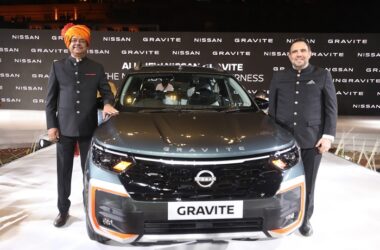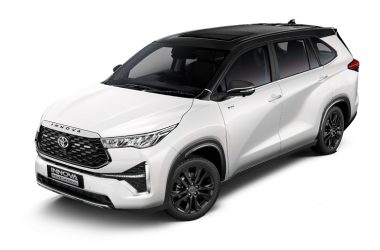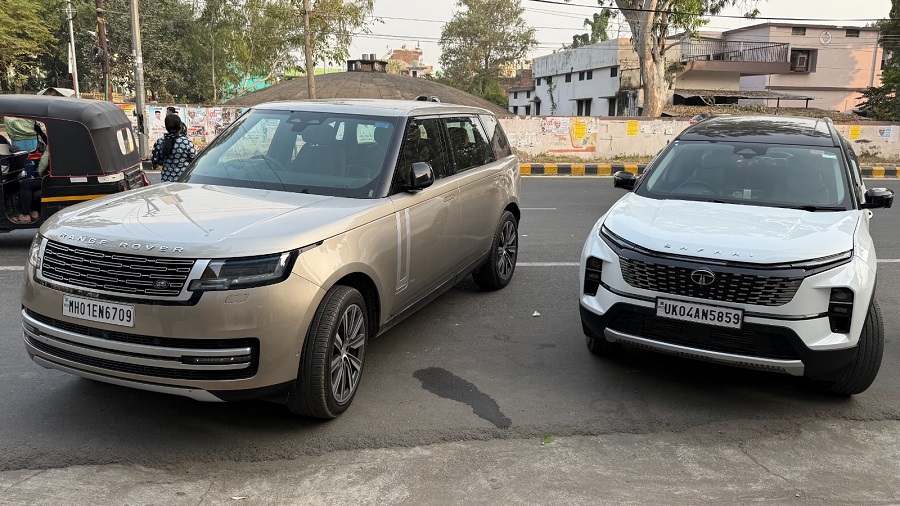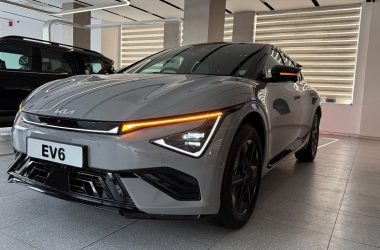Mumbai – If Tata Motors had a LinkedIn profile this quarter, it would read: “Debt-free, cash-rich, record-breaking, and still humble.” In a fiscal year filled with electric dreams, diesel dilemmas, and a touch of geopolitical tango, Tata Motors has steered through the chaos to post its highest-ever Profit Before Tax (before exceptional items) – a princely ₹34,300 crore.
And for those of us still figuring out how to split the bill after dinner, Tata’s automotive business has casually turned cash positive, with a ₹1,000 crore net cash balance. You heard that right – Tata Motors is no longer just driving India’s roads, it’s cruising down the highway of fiscal fitness, wearing sunglasses and playing “We Are the Champions” on loop.
JLR: When SUVs Go to Milan Fashion Week
At Jaguar Land Rover, FY25 was more couture runway than factory floor. The luxury arm continued its Reimagine Transformation – which we assume involves Range Rovers doing yoga and EVs attending mindfulness retreats.
While Q4 revenue dipped a polite 1.7% (perhaps it blinked), profitability soared like a Range Rover SV over a champagne fountain. EBIT was up to 10.7%, and PBT(bei) hit £875 million. Not to forget, JLR achieved ten consecutive profitable quarters – that’s more consistency than most New Year resolutions.
JLR also revealed the jaw-dropping Jaguar Type 00, which has racked up over 32,000 “expressions of interest” globally – although it’s unclear how many of those were just fans trying to get a selfie. The upcoming Range Rover Electric is already booked like your favorite brunch spot – with 61,000 people in queue.
Tata CV: When Trucks Go Green and Talk Smart
On the Commercial Vehicles front, Tata didn’t just carry freight — it carried the entire sustainability narrative. From launching India’s first LNG prime mover to showcasing a hydrogen-powered beast that can run 550km without breaking a sweat, Tata CV turned its booth at Bharat Mobility Expo 2025 into a Transformers sequel.
Revenues slightly declined (by 0.5%) but margins did a little celebratory jig with EBITDA at 12.2%. With ROCE at 37.7%, even your investment portfolio is now asking: “Should I get into trucks?”
Tata PV: Less Volume, More Voltage
In the Passenger Vehicles pit stop, revenues may have dipped 13.1% this quarter, but Tata’s EV game is in pole position. Despite heightened competition, Tata Motors retains its EV crown with a market share of 55.4% — a figure high enough to make rival manufacturers consider switching careers to tech podcasts.
The big wins? EVs are now EBITDA positive, the Punch SUV was crowned India’s No. 1 choice among private buyers, and Tata’s commitment to multi-powertrain options is so strong, even their cars are wondering if they’re petrol, diesel, CNG, flex-fuel, or emotionally electric.
They even unveiled the Avinya X — a futuristic concept that looks like it belongs in Wakanda. Who knew your next ride might come with ambient lighting, vegan leather, and a better existential plan than you?
Dividend Dreams and Demerger Drama
Tata Motors also decided to play fairy godparent to its shareholders, recommending a final dividend of ₹6 per share – enough to buy a cappuccino or a large bottle of engine oil, depending on where you stand.
And with the much-discussed demerger now greenlit, Tata’s businesses are ready to go their separate ways like well-adjusted siblings — still friends, still family, just with their own Instagram handles.
In Conclusion: All Torque, No Tantrum
With free cash flows gushing at ₹19,400 crore this quarter, record highs across the board, and enough innovation to make Elon Musk look twice, Tata Motors has firmly declared — “We’re not just making cars; we’re making history.”
Whether it’s a Range Rover rolling into Milan, a hydrogen truck crossing freight corridors, or the Avinya EV prepping for interstellar travel — Tata Motors’ FY25 was anything but ordinary.
And if Q4 was a movie, the post-credits scene would say:
“Coming Soon: More Electric Punches, Hydrogen Horses, and a whole lot of Torque.”
| Q4 FY25 | Consolidated (₹ Cr Ind AS) | Jaguar Land Rover (£m, IFRS) | Tata Commercial Vehicles (₹Cr, Ind AS) | Tata Passenger Vehicles (₹Cr, Ind AS) | |||||
| FY25 | Vs. PY | FY25 | Vs. PY | FY25 | Vs. PY | FY25 | Vs. PY | ||
| Revenue | 119,502 | 0.4 % | 7,727 | (1.7)% | 21,485 | (0.5) % | 12,543 | (13.1) % | |
| EBITDA (%) | 14.0% | (60) bps | 15.3% | (100) bps | 12.2% | 20 bps | 7.9% | 60 bps | |
| EBIT (%) | 9.6% | 80 bps | 10.7% | 150 bps | 9.7% | 10 bps | 1.6% | (130) bps | |
| PBT (bei) | 12,068 | ₹2,526 Cr | 875 | £ 214 mn | 2,073 | ₹89 Cr | 389 | ₹(144) Cr | |
| FY25 | Revenue | 439,695 | 1.3% | 28,961 | (0.1)% | 75,053 | (4.7) % | 48,445 | (7.5) % |
| EBITDA (%) | 13.1% | (100) bps | 14.3% | (160) bps | 11.8% | 100 bps | 6.9% | 40 bps | |
| EBIT (%) | 7.9% | (10) bps | 8.5% | – | 9.1% | 90 bps | 0.9% | (110) bps | |
| PBT (bei) | 34,330 | ₹4,963 Cr | 2,489 | £ 324 mn | 6,649 | ₹545 Cr | 1,083 | ₹(340) Cr | |








